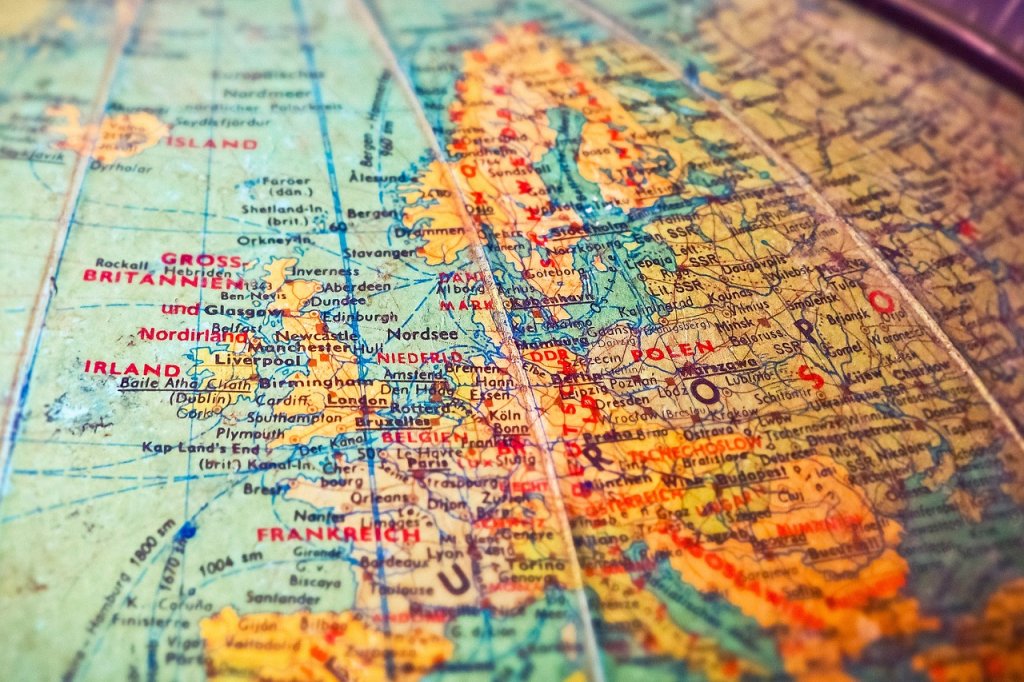
While Turkiye-EU relations had entered a period presumed to be leading to full membership with the announcement of candidate status in 1999 and the start of negotiations in 2005, a period of decline in the 2010s followed the stagnation period caused by Southern Cyprus’s membership to the EU representing the whole island. After the 2016 Migration Deal, the nature of these relations began to be characterized as “transactional.” In this transactional approach, the policy areas that come to the forefront are discussed under migration, economy, energy, and security headings. Migration, which increased from the south to the north after the Arab uprisings and reached its highest level in 2015, is at the top of the agenda of both the EU and Turkiye. Russia’s aggressive stance, which started with its annexation of Crimea in 2014 and continued with its attack on Ukraine in 2022, has caused an increase in importance given to security and geostrategy concerns within Europe by threatening the international liberal order and the territorial integrity of European countries. The search for alternative energy sources accelerated by the Ukrainian War and the idea of a geostrategic Europe, underlined by the president of the European Commission, Ursula von der Leyen, clearly show that these four main topics form the basis of the future of the EU.
Although the issue of migration has been on the EU’s agenda since the 1990s, it rose to the top of the agenda in the 2010s due to the Arab uprisings. With the EU’s inability to decide on a common policy and system, it became a cause of unrest within the EU and prevented it from being a reliable actor outside of the EU. The EU, which could not decide on a quota system within itself, has externalized the issue of migration while securitizing it. It has tried to make agreements similar to the ones with Turkiye, Libya, and Tunisia. The proposed deal with Libya was harshly and, considering the human smugglers who might take advantage of the political and military unrest in the country, rightly criticized by human rights organizations. With the agreement signed with Tunisia in July 2023, more than 1 billion Euros in grants and aid were given under the pretense of transition to green energy, increasing interpersonal relationships, migration and mobility, and economic relations. In October 2023, Tunisia sent 60 million Euros back to Brussels, accusing the EU of withholding its promised funds. Turkiye, on the other hand, has proven to be the EU’s most reliable partner, even while having many economic, social, and political problems internally due to the increasing number of migrants.
Another common issue in Turkiye’s relations with the EU is economic relationships. The Customs Union has been discussed a lot since it took effect in 1996, and over the years, it has become unable to keep up with economic changes and meet new needs. The Customs Union needs to be modernized due to the changing framework of the Turkish economy and to respond to the green transformation that the EU has frequently underlined in recent years. There is a need for digitalization and green transformation policies to be reflected in the Customs Union and for the economic activities included in the Union to be diversified. In this context, the inclusion of sectors such as service and agricultural products in the Customs Union and the implementation of free trade of goods in all aspects are among the topics discussed in modernization. In addition, it should not be forgotten that updating the Customs Union is necessary to eliminate the problems in the asymmetrical relationship model that arises from the fact that Turkiye is not a member of the EU. Public procurement, one of the areas mentioned in the 2015 report on the modernization of the Customs Union, is essential in preventing corruption, strengthening institutionalization, and ensuring the rule of law in Turkiye. The inclusion of e-commerce activities, which became more popular with COVID-19, in the Customs Union is essential, mainly so that start-up companies can benefit from the Customs Union at the highest possible level.
In addition to Turkiye’s commercial relations, green transformation also comes to the fore in its relations with the EU regarding energy. In this context, the project, which requires long-term investment and planning, aims to transport hydrogen from the place where it is produced to the areas where it is needed, including industrial and domestic customers, comes to the fore in Germany. In contrast, Germany-Turkiye relations come to the fore in producing electricity that cannot be produced by wind or solar energy by establishing hydrogen power plants. Russia’s diversification of energy resources that started with the Ukraine War is among the most critical issues for Turkiye and the EU, both geographically and resource-wise. Turkiye’s 2035 plans include increasing the solar and wind energy generation ratio to 52.9 GW and 29.6 GW. Studies show that green hydrogen production from renewable energy can significantly transform Turkiye’s end-user sector.
While studies within the sustainability framework are discussed under economic and energy policies, they are also closely related to the issues of migration within the scope of combating climate change. With the green transformation, the EU is trying to encourage not only its transformation but also the transformation of every country with trade relations. It is a fact that with climate change, the waves of migration from southern countries to northern countries will increase. Rising temperatures and droughts, hurricanes, floods, and storms threaten people living in rural areas, especially in developing countries. According to IOM estimates, up to 216 million people are expected to migrate due to climate change by 2050. Afghanistan, Syria, Chad, India, and Pakistan are among the countries that will be the most affected. Turkiye will maintain its position as a transit and destination country from the migration waves that will come from these regions.
In addition to the aforementioned policy areas, security policies, inseparable from these topics, represent another realm where Turkiye and the EU can find common ground in their shared interests. Turkiye’s relations with the West since World War II have been carried out on a security-oriented basis, and the security policies handled within the framework of NATO during the Cold War continued to diversify after its end. Turkiye, which has been closely interested in the security umbrella that the EU has been trying to create under the Union’s roof since the 2000s, has also shown interest in the recently put forward PESCO project. It expressed willingness to participate in the military mobility project in which the Netherlands is the project coordinator. However, the requirement for unanimous approval from the Council on top of the approval of the project partners in PESCO projects makes it difficult for Turkiye to participate in projects. To navigate political challenges effectively, it can be recommended to enhance the collaborative framework between Turkey and the United Kingdom, especially in light of the latter’s departure from the EU through Brexit. However, finding common ground in this area will only be possible if Turkiye returns to its role as a reliable ally within the Western security umbrella and end its search for non-NATO security structures.
In light of evolving economic, political, and geostrategic dynamics, it is imperative for both Turkiye and the European Union to converge on shared interests across these domains. Beyond Turkiye’s EU candidacy and membership, mutual collaboration between these two entities, confronting similar issues and challenges in the shared region, would prove advantageous for all involved parties. However, adopting a transactional approach to partnerships focused on these issues risks undermining the fundamental norms of human rights, democracy, and the rule of law in both EU-Turkiye relations and the regions encompassed by the EU neighborhood policy. In a time marked by a departure from universal norms and a rise in populist and extremist politics, establishing a cooperative model based on shared norms would benefit the EU, Turkey, and the region. Despite this, there is a current inclination toward bilateral and interest-focused relations, sidelining the advantages of multilateral cooperation.
Translation: Beyza Eda Aydın, Koç Üniversitesi.

Prof. Dr. Çiğdem Üstün, İstanbul Nişantaşı Üniversitesi
Prof. Dr. Çiğdem Üstün, Bilkent Üniversitesi Siyaset Bilimi ve Kamu Yönetimi Bölümü’nden mezun olduktan sonra University of East Anglia’da Uluslararası İlişkiler ve Avrupa Çalışmaları alanında yüksek lisansını tamamlamıştır. Doktorasını University of Limerick, İrlanda’da Avrupa Birliği ve Türkiye güvenlik kültürleri üzerine tamamlamıştır. Avrupa Birliği alanında doçent olan Üstün, İstanbul’da Nişantaşı Üniversitesi Uluslararası İlişkiler Bölümü öğretim üyesidir. Araştırma alanları olan AB-Türkiye ilişkileri, AB ve Türkiye komşuluk politikaları üzerine ulusal ve uluslararası yayınevleri tarafından basılmış kitap ve makaleleri bulunmaktadır.
Bu yazıya atıf için: Çiğdem Üstün, “Shared Interests in European Union – Turkiye Relations ” Panorama, Online, 15 April 2024, https://www.uikpanorama.com/blog/2024/15/04/cu-8/
Telif@UIKPanorama. Çevrimiçi olarak yayımlanan yazıların tüm telif hakları Panorama dergisine aittir. Aksi belirtilmediği sürece, yayımlanan yazılarda belirtilen görüşler yalnızca yazarına/yazarlarına aittir. UİK, Global Akademi, Panorama Yayın Kurulu ile editörleri ve diğer yazarları bağlamaz.

